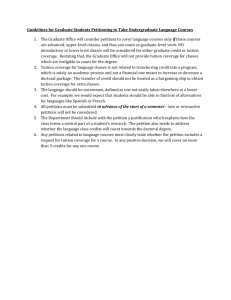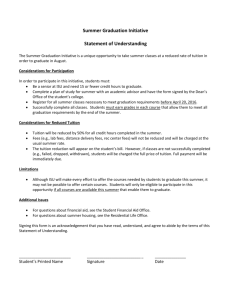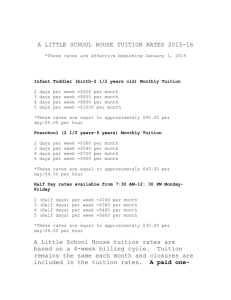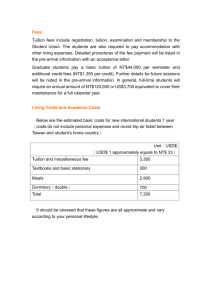April - Research and Graduate Studies
advertisement
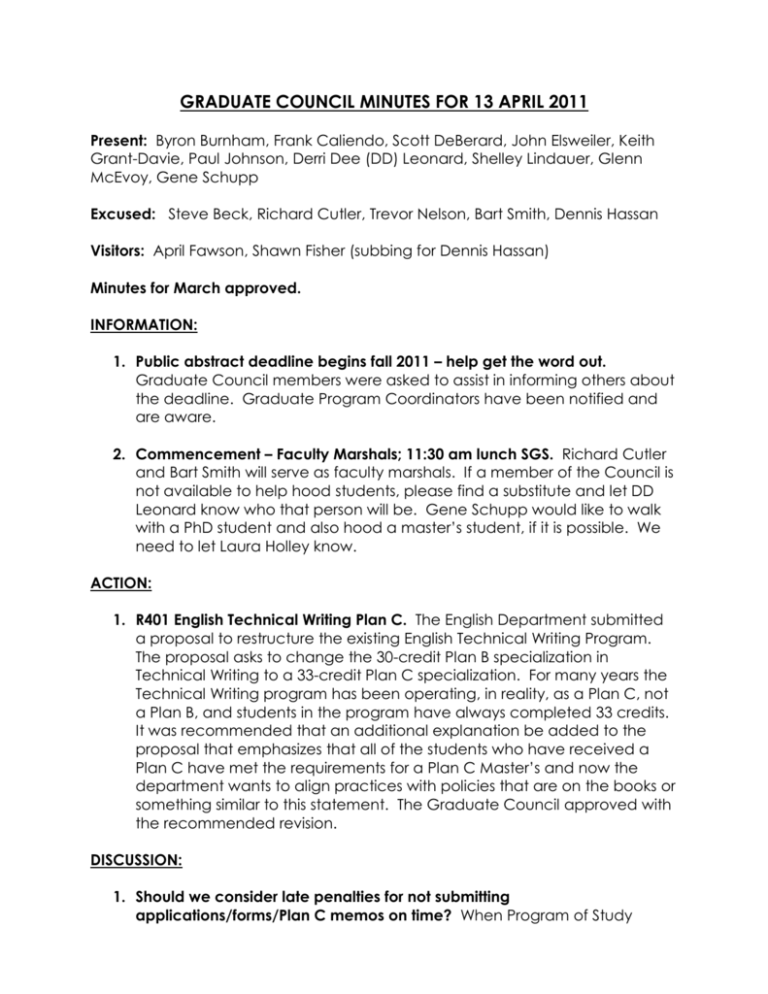
GRADUATE COUNCIL MINUTES FOR 13 APRIL 2011 Present: Byron Burnham, Frank Caliendo, Scott DeBerard, John Elsweiler, Keith Grant-Davie, Paul Johnson, Derri Dee (DD) Leonard, Shelley Lindauer, Glenn McEvoy, Gene Schupp Excused: Steve Beck, Richard Cutler, Trevor Nelson, Bart Smith, Dennis Hassan Visitors: April Fawson, Shawn Fisher (subbing for Dennis Hassan) Minutes for March approved. INFORMATION: 1. Public abstract deadline begins fall 2011 – help get the word out. Graduate Council members were asked to assist in informing others about the deadline. Graduate Program Coordinators have been notified and are aware. 2. Commencement – Faculty Marshals; 11:30 am lunch SGS. Richard Cutler and Bart Smith will serve as faculty marshals. If a member of the Council is not available to help hood students, please find a substitute and let DD Leonard know who that person will be. Gene Schupp would like to walk with a PhD student and also hood a master’s student, if it is possible. We need to let Laura Holley know. ACTION: 1. R401 English Technical Writing Plan C. The English Department submitted a proposal to restructure the existing English Technical Writing Program. The proposal asks to change the 30-credit Plan B specialization in Technical Writing to a 33-credit Plan C specialization. For many years the Technical Writing program has been operating, in reality, as a Plan C, not a Plan B, and students in the program have always completed 33 credits. It was recommended that an additional explanation be added to the proposal that emphasizes that all of the students who have received a Plan C have met the requirements for a Plan C Master’s and now the department wants to align practices with policies that are on the books or something similar to this statement. The Graduate Council approved with the recommended revision. DISCUSSION: 1. Should we consider late penalties for not submitting applications/forms/Plan C memos on time? When Program of Study (POS), Appointment for Exam forms, Application for Candidacy forms, Committee forms, and Plan C completion memos are not submitted by the required timelines, extra work is created for the SGS staff and departments at the busiest time of the semester, and it is frustrating to the students involved. In fact many times, all of these forms have been known to come in on the same day for a single student. The resulting problems can be serious, for example: turning in a POS at the last moment and then finding out that a committee member cannot be approved, or not being able to match courses with the POS requiring a student to petition for an academic adjustment through the Registrar’s Office. SGS wonders if financial penalties were implemented when deadlines aren’t met, if that would be a deterrent. Some council members said that submitting POS early is problematic, that it’s not the student’s fault nor is it necessarily the departments. Laura Holley reminded everyone that revisions to the POS are easy. She just needs an email (laura.holley@usu.edu), and she will make the changes. There were no suggestions for penalties, but it was a good conversation to have. SGS will meet with staff and see what kind of an approach to take. 2. Issues surrounding Ed.D. and Ph.D. offered through distance delivery. A few months back the Graduate Council passed a rewording of the policy for doctoral degree residency. Degree residency was difficult to define, but the GC was looking for the “spirit” of what it means. It was determined that departments could look at the new definition and make their own decisions, but the ad hoc committee did list recommended markers to be used in defining degree residency. Recently, there have been numerous requests to move students from the Ed.D. program into the Ph.D. program. Dean Burnham wondered if the GC feels concern that a department may not be meeting the intent of the definition. Dean Burnham and Shelley Lindauer have thought about making the Ed.D. a professional degree. This would encourage more of a conscientious choice early on by students whether to do an Ed.D. or a Ph.D. 3. Tuition award budget. The tuition rates have increased by 9% for the 20112012 academic year. This will substantially impede our ability to provide tuition awards for quality graduate students. According to our present budget, we will lose 65 in-state tuition awards and 50 nonresident tuition awards. Even increasing our budget consistent with the 9% increase will not remedy the issues. Master’s money has been diminishing since 2004 but now this is the first time the doctoral students are going to be affected. Two options of addressing the budget issue were presented to the GC: (1) move all tuition awards to a nomination basis; or (2) limit the tuition awards to 6 or 9 credits each semester. The Council thinks it would be easier on students to be limited to 6-9 credits, rather than go to a nomination process. Current and future graduate students have already been recruited based on our previous policy which was to fund all students who qualified. Dave Cowley and Whitney Pugh are aware of the situation now and Dave will make recommendation to administration to raise our tuition budget and tie it to the increase of tuition increases. The Council was asked to share with their colleges to make everyone aware how serious the tuition award problem is. 4. Dual Ph.D. request. A student asked if it’s possible to do a dual Ph.D. in Physics and Biology. There is nothing in the catalog about allowing a student to do two doctoral degrees at the same time. There is an existing policy which allows overlap of credits from the master’s to doctoral degrees, but there is no policy that allows any overlap of credits for two Ph.Ds. If this was allowed, there would be implication with tuition awards as far as how many credits would be covered. Two separate dissertations would be required, and a time limit would have to be set. The Council would like Dean Burnham to see what other institutions may be doing and then bring back for discussion next fall. 5. Pearson Test of English. Pearson partners with ETS. ETS uses Pearson’s facilities. They say there is a market for a third test for English. Pearson launched their English test in 2009 and it is available to USU for the 2012 year. The test begins with a speaking audio file and goes on to speaking, writing, and reading test sections, approximately 3 hours in total. Pearson’s provides a scale comparison to TOEFL. They do not charge extra to send results to as many institutions as desired. The cost should be comparable to that of the TOEFL exam. The Graduate School will find out what the cost is. We may want to offer this as another option for international students. We’ll continue to explore this.

